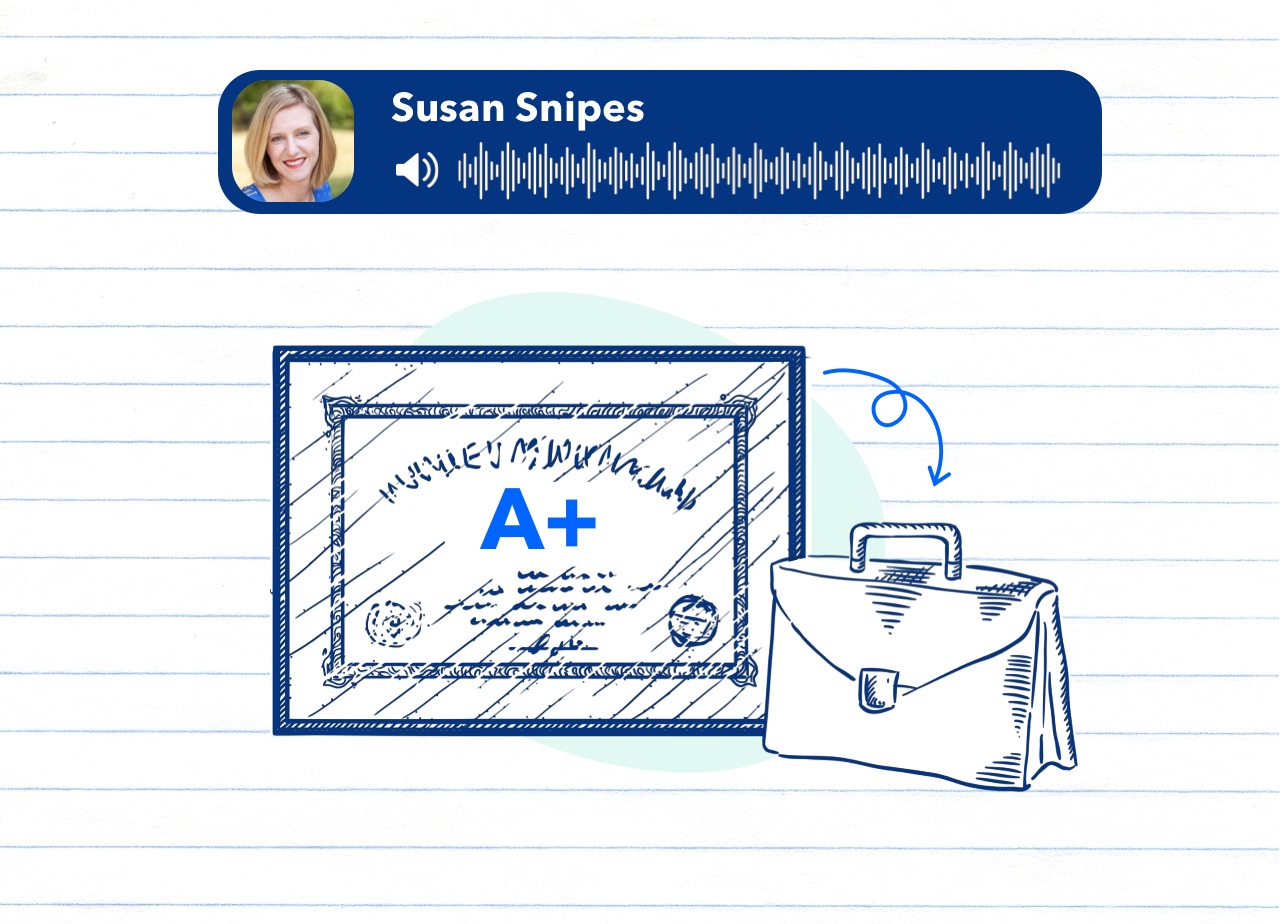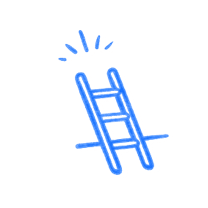Topic 3: How to apply SHRM and HRCI test prep knowledge to the job: Ask an Expert
Susan is an HR expert and consultant who worked with us on a three-part interview series. In this segment, we talk about how to apply SHRM and HRCI test prep knowledge to your job.
Listen to the full audio recording or read our edited transcript below.
Key points we cover:
- What are some typical HR job duties
- Types of questions in the HR exams that are specifically designed to mimic real-world situations
- Topics on HR exams that come up most in an HR professional’s typical day
- Collaboration in the HR industry

Full Transcript:
Alyson: [00:00] At Pocket Prep, we get a lot of questions about how our material will prepare you for the actual exam. While our prep material is super accurate, what about applying your exam knowledge to the actual job? How does what you learn on the test relate to what you’ll be doing day in and day out?
I’m joined again by Susan Snipes to talk through the similarities and differences of what you learn in HR certifications and how to apply it to your actual job.
So first, let’s talk about what you’re actually able to do once you get an HR certification. What are some typical HR job duties?
Susan: [00:20] Well, as a Global HR Consultant, my duties vary pretty wildly, depending on my client’s industry, size, and the geographic location of their team members. In general, though, I support employers with every aspect of HR functional areas, including Recruitment, Compliance, HR Management, Payroll, and Benefits. But, even if you think you might stick with just one functional area and become an expert in that one focus area, it’s important to have a basic understanding of all HR functions. This is because they are all interrelated, and you can’t change one area without it impacting at least one other. I’ll throw an example out there.
You want to recruit for a new position, so you need to complete the compensation analysis and job description ahead of time, and you need to make sure you’re set up to pay and hire people in a given jurisdiction so payroll tax accounts are needed, plus you need to understand what benefits are required by law locally and how to set those up. Changing a job description impacts performance criteria, et cetera. See what I mean?
Alyson: [01:04] Are there any areas or types of questions in the tests that are specifically designed to mimic situations you might face in the real world?
Susan: [01:16] Totally. There are several scenario-based questions where it’s your job to select the BEST answer. These questions will help you stretch the same problem-solving muscles you need to employ in the workplace.
Alyson: [01:25] When you say the best answer, I’m inferring that to mean that a question may have multiple answers that may be technically correct, but there’s one that’s the winner. Is that also true?
Susan: [01:32] Unfortunately, yes. But I think that’s probably true of most standardized tests. So much is memorization of terms and dates, all of which are just an internet search away in the real world. However, even these terms and dates hold value because, through the act of studying them, you learn where exactly to find reliable answers quickly, and more importantly, you can better identify what you DON’T know when something is outside of the laws and concepts you’ve covered. The number one thing I see that gets HR professionals in trouble is a poor understanding of their own knowledge gaps.
Alyson: [02:34] What are the topics from some of these exams that come up the most in an HR professional’s day-to-day?
Susan: [02:39] That really depends on your discipline and industry. One topic that is really hot right now is unionization; both certification exams cover unions. For example, if you work in Manufacturing, Trucking, or Mining, Health and Safety are going to dominate your day. Whereas if you are in SaaS or Professional Services, technical training and development and Comp/Benefits design might be your main focus areas. If you work for an enterprise company with 10,000 employees, then you probably hold a niche position within only one HR function, like Employee Relations Specialist II. But if you work for either a small company or at a field location that operates somewhat independently, then you might be that “HR Department of One” and do it all.
Alyson: [04:19] How much collaboration is there between you and other HR professionals?
Susan: [04:32] We are a tight-knit group. We meet with each other, we share our knowledge, and we ask each other questions. It’s a really neat network to be a part of.
Alyson: [05:44] Well, I think that wraps up all the questions I have for you.


